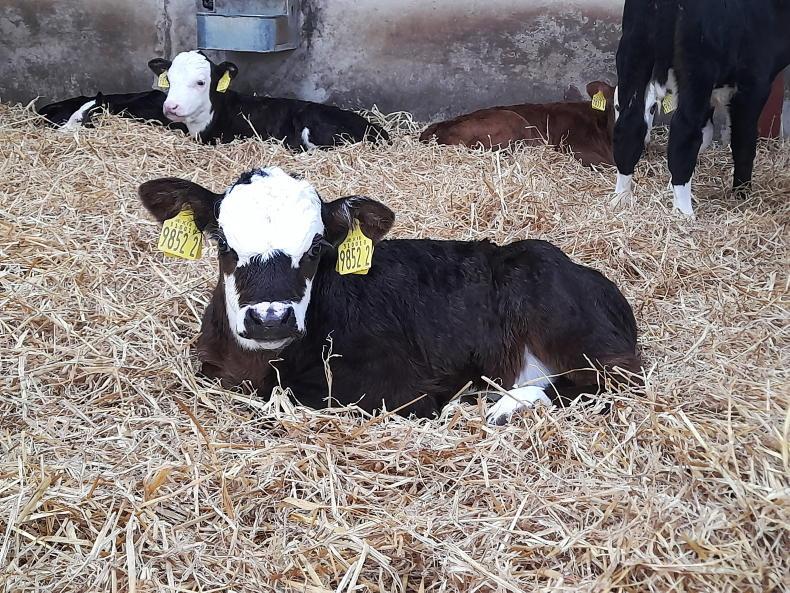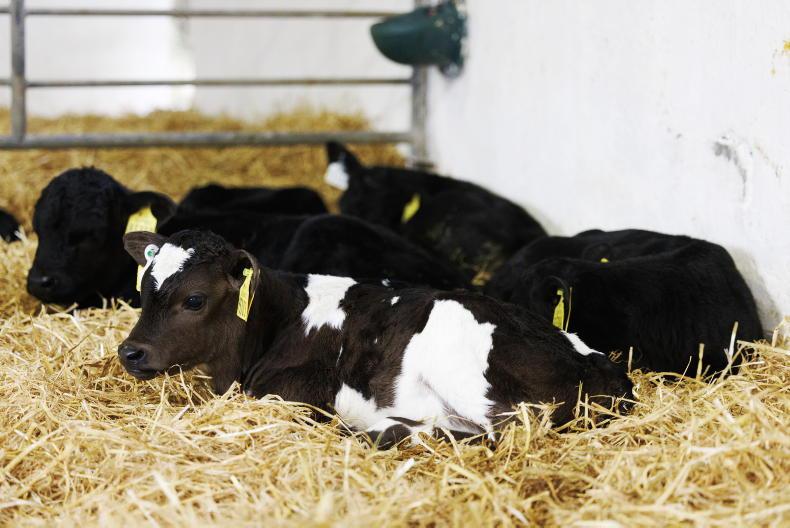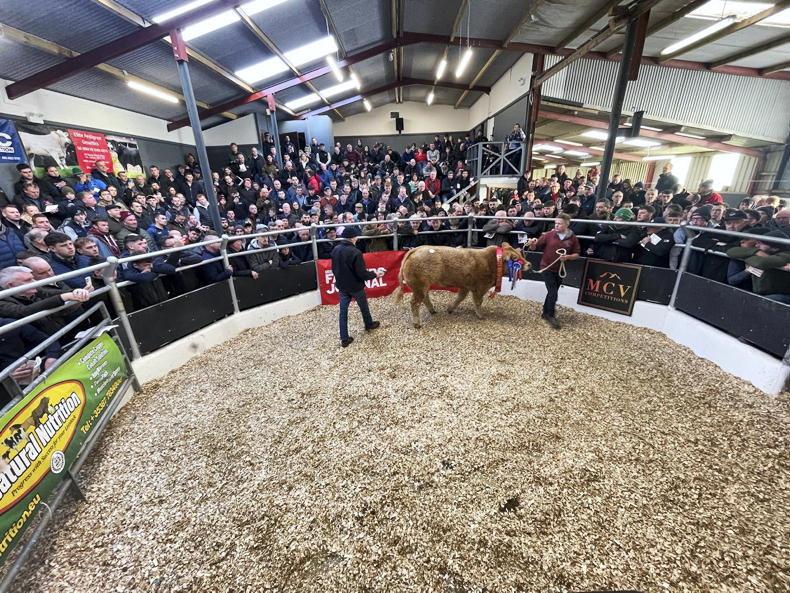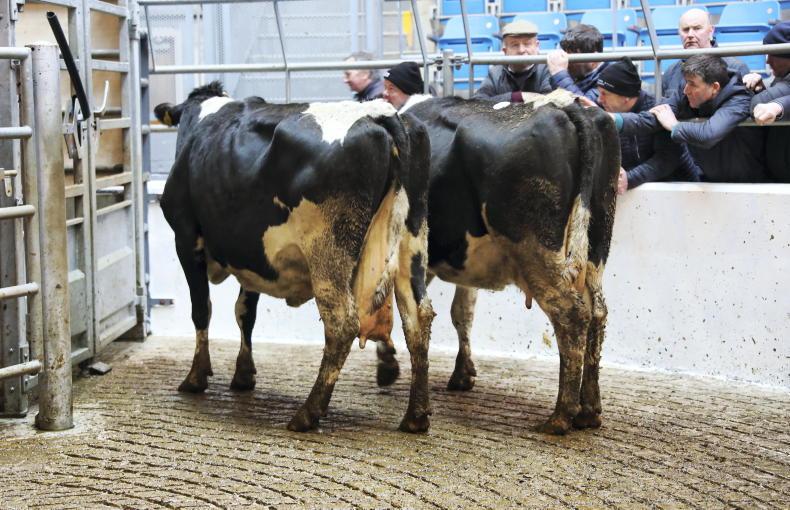1 Colostrum
Getting colostrum management right is one of the best things a suckler farmer can do to give calves the best possible start in life. This is the largest immunity boost a calf can get and will also provide important energy. Getting the diet right in the cow beforehand is important and making sure suckler cows are being fed a good-quality mineral is also very important.
Silage which is low in protein isn’t good for good colostrum and low-protein silage can be an issue on suckler farms. Supplementation with a high-protein meal prior to calving may be required to boost colostrum production. The aim is to get 3l into the calf inside three hours of birth. If a cow has been handled or a calf assisted with a jack or ropes, this calf should be stomach-fed. Where a calf has had a very hard pull it may be beneficial to put a heat lamp with them. Calf jackets have also been used to good effect with sick calves on some farms.
2 Hygiene
Hygiene is really important around calving time. Young calves are very prone to picking up infections so equipment like stomach tubes or bottles with teats should be thoroughly disinfected after each use. Using gloves and disinfecting wellies will also help reduce the spread of scour if it occurs.
Making sure calving pens are cleaned out regularly is also very important to reduce disease buildup.
Don’t skimp on straw. It might be €20/bale but using ample straw is a huge help in keeping young calves healthy. A calf should have the ability to nest in straw and this will help eliminate the ill effects of low-level draughts and keep the calf warm.
Older calves should have access to a well-bedded lieback area where cows are housed on slats. Don’t cram too many animals into one space as this will increase disease pressure and lead to bigger problems in the event of a breakdown in animal health.
If milking a cow for calf feeding, try and clean teats first and make sure the bucket is clean to avoid contaminated material getting into the calf’s gut.
3 Time
Spring is a very busy time on farms and especially on part-time farms where a job is being juggled alongside a farm. Time is one of the most important things when looking after stock. Taking time to see did a calf suck, taking time to see if all calves are stretching after they get up and are in general good health is paramount. Rushing into a shed in the mornings in poor light won’t work.
4 Vaccines
Where there have been animal health issues in the past or where you want to bullet-proof calf health, vaccination can play an important role. There is one pneumonia vaccine on the market which can be administered intranasally as soon as the calf is born. Some vaccines can be administered intranasally to speed up their action. Make sure to follow up with any boosters required to maximise immunity.










SHARING OPTIONS